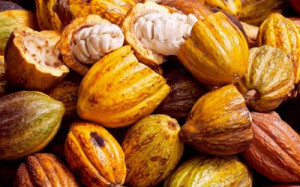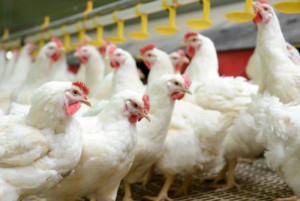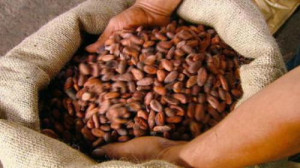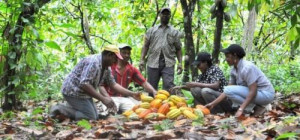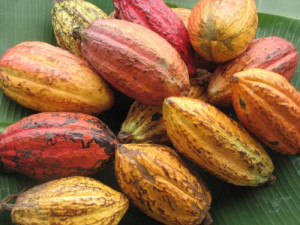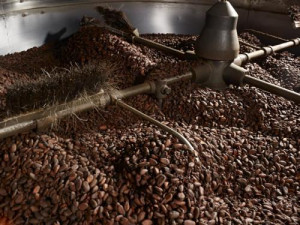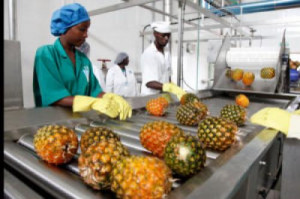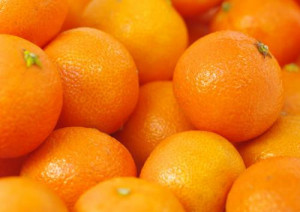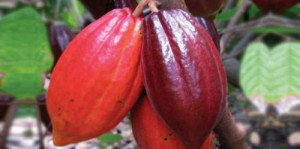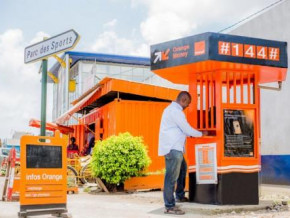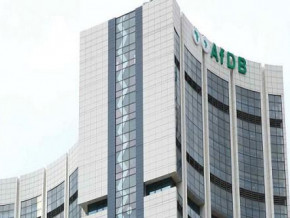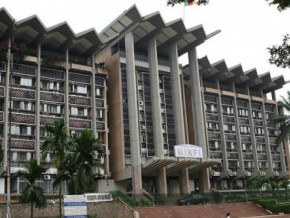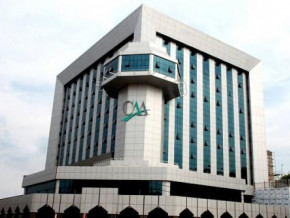
Cameroon: Cocoa prices declined by CFA130-90 from last week of September
In Cameroon, the current price per kg of cocoa in production areas ranges between CFA910 and CFA970, representing a decline by CFA130-90 from the last week of September, the National Cocoa and Coffee Board (ONCC) said. Surveys carried out under the Sectors’ Information System (SIF) project showed that the decline started after the price stood at CFA1000-1100 since early August.
This drop in prices can be attributable to the persistent rainy season, which makes it difficult to access certain production regions leading to additional costs for buyers.
BRM
Cameroon: Poultry provided 34.38% of total meat production in 2011-16
Over the period from 2011 to 2016, poultry accounted for 34.38% of Cameroon’s overall meat production. This was revealed by Dr Taïga, the minister of husbandry, fisheries and animal industries (Minepia) in an interview with Defis Actuels.
On a more general level, meat production in Cameroon increased by 9.78%, from 313,000 tons in 2011 to 344,000 tons in 2016, Dr Taiga pointed out. The upturn is subsequent to a set of projects and programs initiated by the government to promote and stimulate livestock activities in the country, despite Boko Haram exactions that began in the Far North in 2013 leading to a decline in the sector.
These initiatives, we learnt, have resulted in an 8% average annual increase in cattle herds during the period under review; a 14% increase in sheep numbers; an average growth of 1.1% per year in goat herds as well as an average annual increase of 4.6% and 4.7% respectively in pig and poultry populations.
However, in the absence of more recent statistics, it may be assumed that this good trend probably reversed in 2017, as the country witnessed two successive avian influenza outbreaks that seriously affected the sector between 2016 and 2017. Indeed, in addition to the CFA16 billion lost by the sector according to the scores of the Cameroonian Poultry Association (Ipavic), the circulation and trade of poultry had been banned for about 10 months in the Western region, a major poultry production area (80%), as to control these outbreaks.
Brice R. Mbodiam
Cameroon: Telcar Cocoa grants CFA2.2 billion in certified cocoa premiums for the 2017-18 season
Telcar Cocoa, local trader of U.S. Cargill, distributed CFA2.2 billion in premiums to certified cocoa farmers during the 2017-18 campaign. The ceremony was held in Yaoundé last September 24. The same amount was distributed in 2016-2017.
This new envelope brings to about CFA6 billion the amount of certified cocoa production premiums distributed in Cameroon over the past six cocoa years by Telcar Cocoa. For the record, thanks to the “Cargill Cocoa Promise” initiative, Telcar Cocoa is the main promoter of cocoa certification in Cameroon, with more than 8,000 certified producers between 2011 and 2015.
Certification training programs in production areas spur a constant growth in certified beans production. From 5,446 tons in 2013-2014, a trader achieved a production of 43,700 tons during the 2016-2017 season, and almost the same volume in 2017-2018.
Let’s note that the Cameroonian government is also promoting certified beans and plans to distribute about CFA1 billion in premiums to certified cocoa producers in the coming weeks.
Brice R. Mbodiam
Cameroon: New Generation Program helped plant 1533 ha of cocoa since 2012
Since 2012 when the New Generation Program of the Cocoa and Coffee Inter-Professional Council (CICC) was launched, the Cameroonian youth trained under the scheme have succeeded in setting 1533 ha of cocoa across the national territory, we learnt.
The program has trained over 1500 youths out of which about 500 successfully completed the 3-year training. Thanks to the use of improved seedlings, these plantations already contribute significantly to the country’s output.
Once they finish the training, the youth who commit to set at least 3 ha of cocoa receive necessary support and equipment from CICC to become agricultural entrepreneurs, specialized in cocoa production.
The New Generation Program, it should be noted, aims at rejuvenating the cocoa-coffee sector’s work force. It was created following a survey which revealed that cocoa producers were aged 60 on average.
BRM
Cameroonian cocoa to be labeled “pure origin”, in collaboration with French chocolate makers
Cameroon is kicking off the “pure origin” labelling process of the cocoa produced at post-harvest processing excellence centers in the country’s production areas. This will follow a meeting between the Confédération des chocolatiers et confiseurs de France, the Cameroonian cocoa and coffee inter-professional council, the trade minister and the French Ambassador to Cameroon on September 30 in Nkog-Ekogo, the Central region.
According to official sources, the process will guarantee Cameroonian producers “support in the working methods (harvesting, cracking, fermentation, drying and storage) approved by the Confédération des chocolatiers et confiseurs de France”. The latter committed to buy beans at higher prices than usual. The label “will be awarded to cooperatives that have a women-included Board”, the parties said. For the record, Cameroon has three excellence centers for post-harvest cocoa processing in Mintaba, Si-Manyaï and Nkog-Ekogo, in the Central region.
Christophe Bertrand, a French master chocolate maker, recalled that back in September 2016 Aristide Tchemtchoua, a local cocoa farmer got in touch with him, via Facebook, and asked him to buy her produce. “When I agreed, she dared to do it. She sent me 250 kg, borrowing €700 (about CFA460,000); which is equivalent to almost a whole year's salary in Cameroon”, reported Christophe Bertrand, impressed by the determination of the woman who will then become his trading partner. Since then, Mr. Bertrand has visited Cameroon several times along with members of the Confédération des chocolatiers et confiseurs de France, whose partnership with cocoa producers in Cameroon has grown stronger over time.
Brice R. Mbodiam
Cameroon: Sic Cacaos, Neo Industry and Atlantic Cocoa could lose CFA11 billion, on Anglophone crisis
In Cameroon, cocoa processing companies are currently facing a continuing decline in activities, mainly due to the ongoing crisis in Anglophone regions. This was revealed by the national inter-employers’ group (Gicam) in a recent report on the crisis’ economic impact.
According to the group, three companies which mainly source raw materials from the North-West and South-West regions are likely to shut down activities over five weeks. These include Douala-based Sic Cacaos with a processing capacity of 55,000 tons, as well as Neo Industry (based in Kekem) and Atlantic Cocoa (in Kribi), which will respectively commission a 32,000-ton plant and a 48,000-ton unit in a few months' time.
GICAM said, the discontinuity in activity could make the companies lose around CFA10.8 billion. However, there is room for recovery. “The recovery of activity lies, in the short term, on the possibility of finding other sources of supply and in particular using spot imports,” the group mentioned.
Sylvain Andzongo
60-80% of agribusinesses are out of reach in North-West and South-West Cameroon due to unrest (Gicam)
Due to the ongoing Anglophone crisis, 60% to 80% of agribusinesses located in the North-West and South-West regions are now inaccessible, the Cameroonian inter-employers’ group (Gicam) said in a recent report on the crisis’ economic impact.
The document indicated that many companies in these regions have been forced to dismantle logistics and marketing infrastructure to avoid vandalism and destruction.
One of the most affected sectors, the beverage industry witnessed a loss of up to CFA40 million in turnover since the unrest started in October 2016. Theft and vandalism have already cost the industry more than CFA500 million in material losses, in addition to sums paid by employees to escape robberies and other threats.
Though milling industries own no flour mill in these regions, their activities also suffer from the climate of insecurity. Delivery trucks belonging to them or to third parties that work directly or not with them have been set on fire. This implies a significant decline (5% to 40%) in deliveries to customers namely bakers and other wholesalers; the impact differing from one company to another. The shortfall for the entire sector is valued at around CFA4.9 billion. Let’s mention that if the situation worsens, total job cuts could reach up to 15% of employees.
Sylvain Andzongo
Cameroon: Orange price rose by over 50% in northern part, on Gouloungou bridge collapse
In the city of Garoua, capital of Cameroon’s northern region, the price of orange increased by more than 50% in recent days, due to the collapse of Gouloungou bridge which links Cameroon to Nigeria. According to L'œil du Sahel which revealed the news, the 100-kg bag once traded at CFA20,000 now costs CFA32,000 CFA francs.
Local sources said, although the northern, far north and Adamaoua regions also have large orange plantations, populations have a preference for fruits from Nigeria which are much juicier and sweeter. In these regions, orange import from the neighboring country increases especially in dry season.
Estimate from the regional delegation of the trade ministry for the northern part showed that 29,373 100-kg bags valued at about CFA450 million were imported from Nigeria in the first half of 2018, according to L'œil du Sahel.
The price might grow further, given the intense smuggling activity along the border with Nigeria in these regions.
Brice R. Mbodiam
Cameroon: BDEAC grants Atlantic Cocoa CFA7.2bn to complete its cocoa processing plant
The Development Bank of Central African States (BDEAC) approved CFA7.2 billion in financing to Atlantic Cocoa to finalize the construction and operation of a plant for processing cocoa beans into semi-finished products (mass, butter and press cake) in the industrial zone of the deep-water port of Kribi, a seaside town in the South Cameroon region.
The document was signed September 17 in Douala between the president of the Atlantic Group, Ivorian Koné Dossongui, and the BDEAC president Fortunato Ofa Mbo Nchama, we learnt. The fund was negotiated by JMJ Africa, a Cameroonian firm specialized in investor support.
The facility which is valued at over CFA30 billion is expected to create about 160 direct jobs, once operational by the end of the year. Processing capacity will be 48,000 tons of beans per year, which can be extended to 64,000 tons.
It is part of a whole agro-industrial project (CFA50 billion) initiated by Mr. Koné Dossongui. The project also includes“the development of industrial agricultural plantations, including agricultural excellence centers in the various cocoa production areas in Cameroon over 25,000 hectares,” the company’s MD Georges Wilson said.
According to BDEAC, the deal with Atlantic Cocoa is in line with the orientations of its 2017-2022 strategic plan as the company contributes to diversify the Cameroonian economy and reduce its dependence on oil revenues.
Let’s note that Atlantic Cocoa was the first company to operate in the deep-water port of Kribi, following an agreement signed January 24 with the autonomous port of Kribi (PAK).
Brice R. Mbodiam
Cameroon could lose 60,000 to 100,000 tons of cocoa in 2018-19, due to Anglophone crisis (Gicam)
During the 2018-19 cocoa season, Cameroon could lose between 60,000 tons and 100,000 tons of local production due to the ongoing crisis in the Anglophone regions. According to the national inter-employers’ group (Gicam), this would translate into a CFA78-130 billion loss in export revenues (foreign currency) including CFA49-81 billion loss in South-West’s producers’ incomes.
In its recent report on the crisis’ impact on economy, Gicam revealed that the South-West region which was the main cocoa output provider, would see a significant drop by 43,000 tons (45.45% to 32%) in production. This implies a CFA56 billion loss in export revenues (foreign currency).
With regards to losses in direct revenues for producers in this region, they total CFA35 million over the period. Gicam noted another loss of CFA3 billion in premium to farmers.
“Losses will be significant in the next seasons even though the crisis gets stabilized because many plantations have been abandoned and most production equipment are destroyed,” the group warned.
Sylvain Andzongo
Mags frontpage
- Most read 7 days
- shared 1 month
- read 1 month


